How do i start python for beginners step by step
How do i start python for beginners step by step
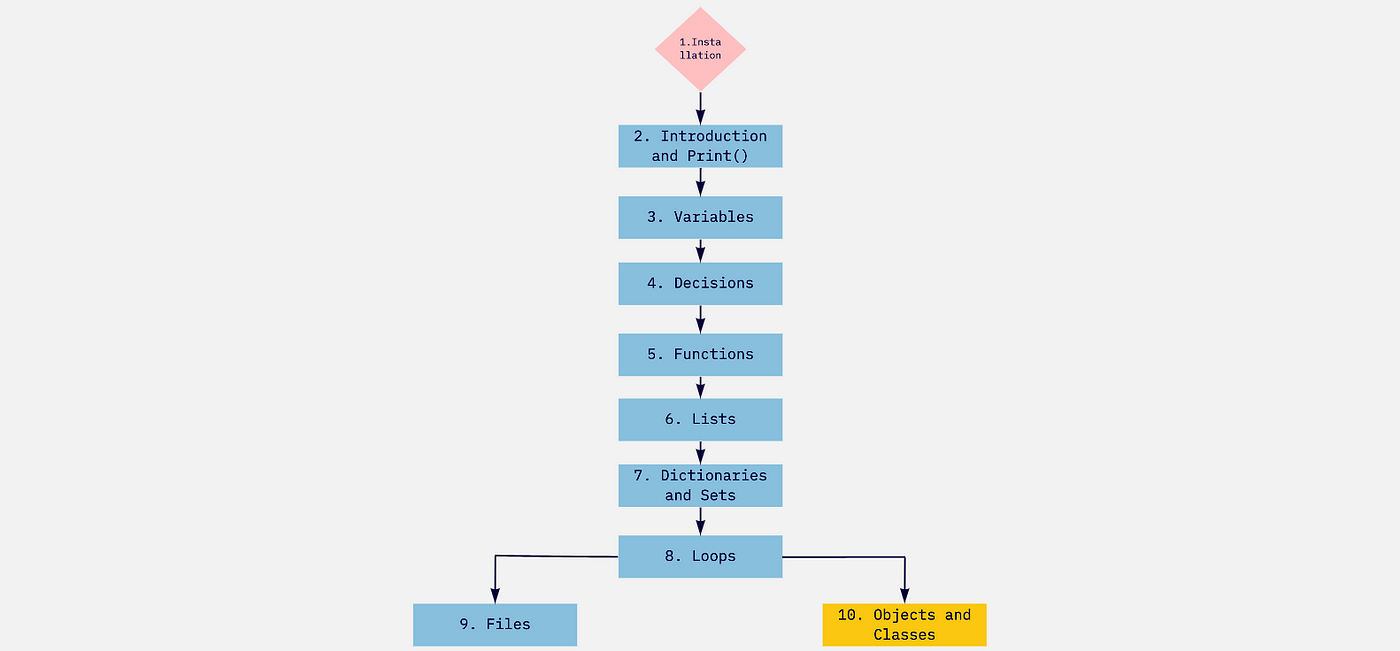
Starting Python for Beginners: A Step-by-Step Guide
Python is a popular programming language known for its simplicity, flexibility, and vast applications. If you're new to programming or want to learn Python from scratch, this guide will walk you through the process step by step.
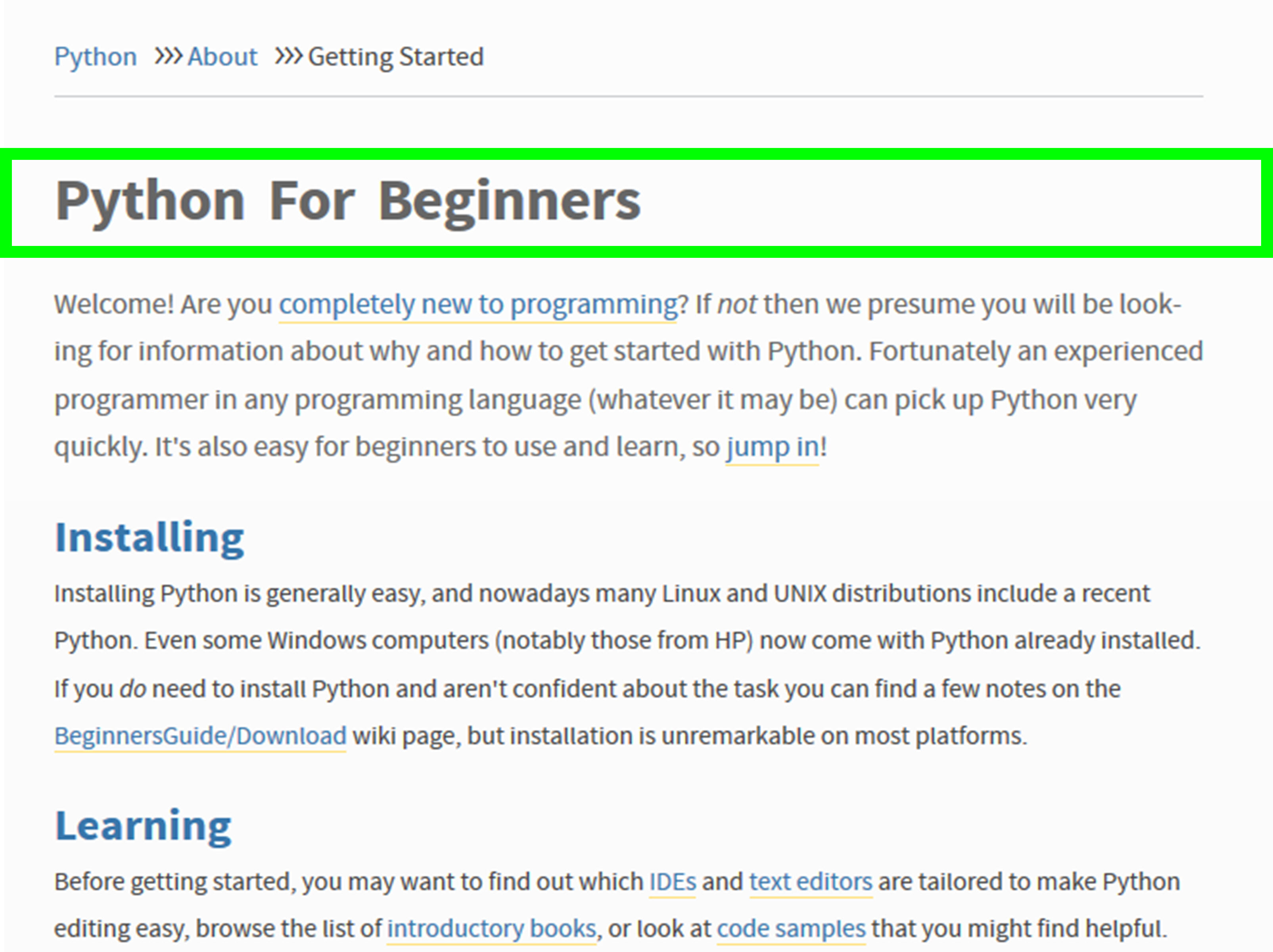
Step 1: Install Python
The first step is to download and install Python on your computer. You can get the latest version of Python from the official Python website (https://www.python.org/downloads/). Follow these steps:
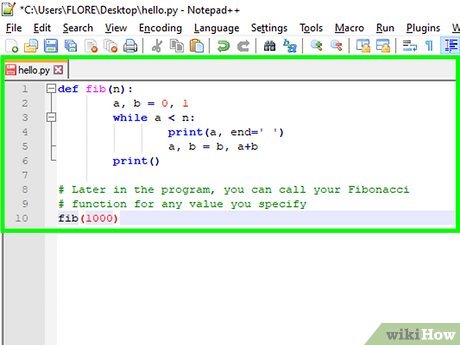
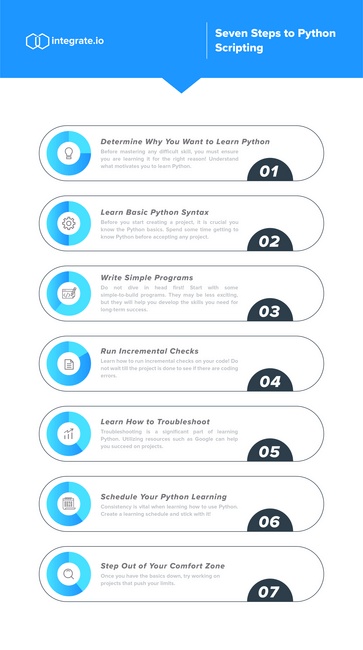
Step 2: Choose a Text Editor or IDE
To write Python code, you'll need a text editor or an Integrated Development Environment (IDE). Here are some popular options:
Text Editors: Notepad++ (Windows) TextEdit (macOS) Sublime Text (cross-platform) IDES: PyCharm (free community edition) Visual Studio Code (free, with Python extension) IDLE (comes bundled with Python)Step 3: Set Up Your Environment
Once you have a text editor or IDE, set up your environment for writing Python code:
Open your chosen text editor or IDE. Create a new file by clicking on "File" > "New File" or pressing Ctrl+N (Windows) or Command+N (macOS). Save the file with a .py extension (e.g., my_first_python_program.py).Step 4: Learn Basic Syntax
Python's syntax is easy to learn, even for beginners:
Indentation: Use spaces to indent your code; this helps define blocks of code. Print() Function: Print() outputs text to the console; use parentheses to specify what you want to print (e.g., "Hello, World!"). Variables: Assign values to variables using the assignment operator (=). For example:x = 5.
Step 5: Practice Writing Python Code
Now that you have a basic understanding of Python syntax, practice writing code:
Start with simple programs, such as printing "Hello, World!" or calculating the sum of two numbers. Use online resources (e.g., tutorials, blogs, and forums) to learn more about Python programming.Step 6: Run Your Code
To execute your Python code, follow these steps:
Open a terminal window or command prompt (Windows). Navigate to the directory where you saved your .py file. Use thepython command followed by the name of your file (e.g., python my_first_python_program.py).
Step 7: Learn Advanced Concepts
Once you're comfortable with basic syntax, explore more advanced topics:
Data Structures: Work with lists, dictionaries, and sets. Control Flow: Use if-else statements, for loops, and while loops to control the flow of your program. Functions: Define reusable blocks of code using functions.Step 8: Join Online Communities
Connect with other Python learners and developers:
Reddit: r/learnpython and r/Python Stack Overflow: Post questions related to Python programming. Python Subreddit: Participate in discussions and share your projects.By following these steps, you'll be well on your way to becoming a Python programmer. Remember to practice regularly and explore the many resources available online. Good luck!
How to start learning Python as a beginner?
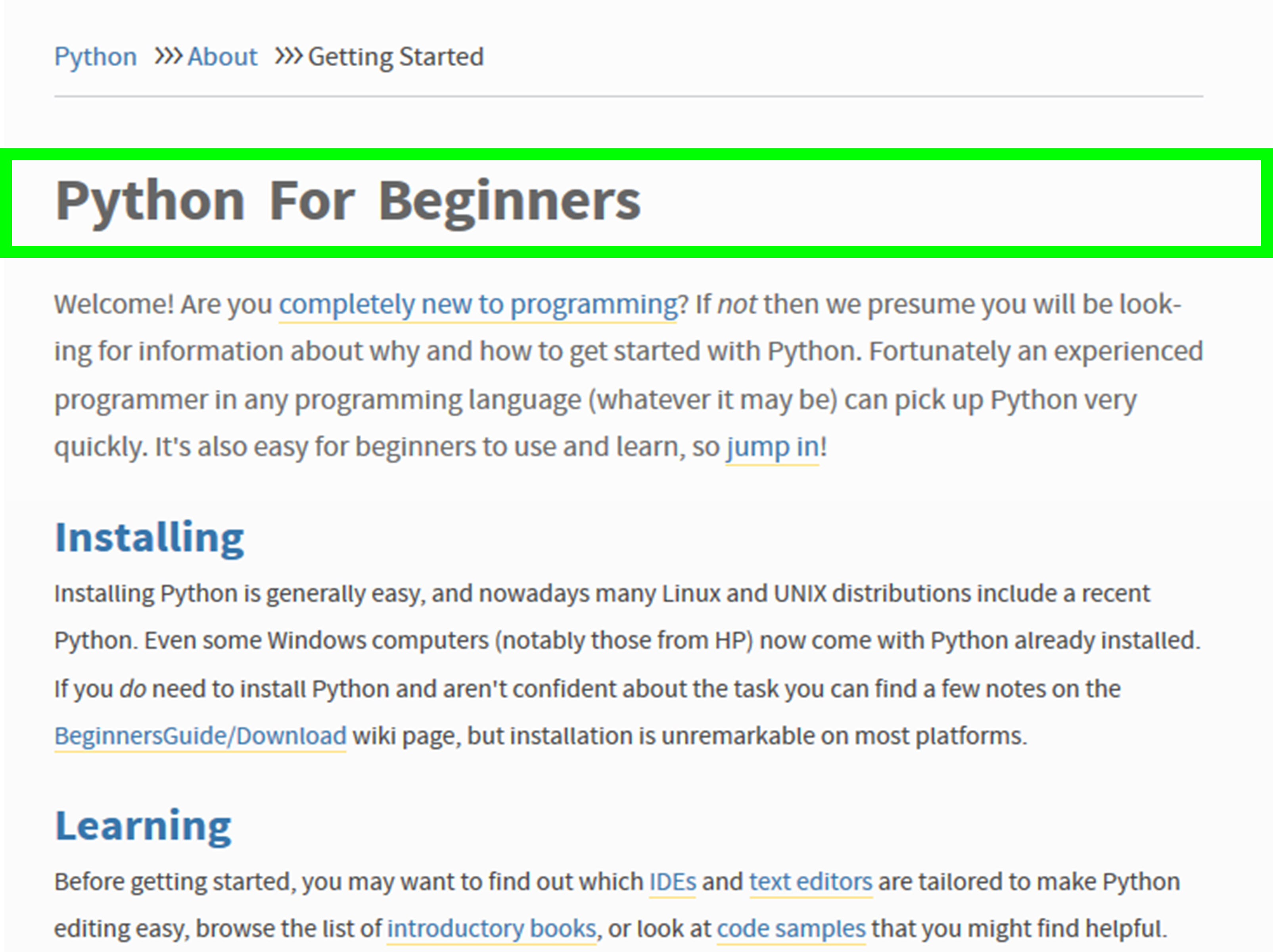
Starting your learning journey with Python as a beginner? That's exciting! Python is an excellent language for beginners, and with the right approach, you can quickly grasp its concepts and become proficient.
Before we dive into the specifics, let me share some general tips to get you started:
Set clear goals: Determine what you want to achieve with Python. Do you want to build games, web applications, data analysis tools, or something else? Having a clear direction will help you focus your learning. Start with the basics: Begin by understanding the fundamental concepts of programming in general. Learn about variables, data types, control structures (if-else statements, loops), functions, and object-oriented programming (OOP). Choose the right resources: Online courses: Platforms like Codecademy, Coursera, edX, and Udemy offer excellent Python courses. Books: "Python Crash Course" by Eric Matthes, "Automate the Boring Stuff with Python" by Al Sweigart, and "Python for Data Analysis" by Wes McKinney are great starting points. Tutorials: Follow official tutorials like Google's Python Tutorial or W3Schools' Python Tutorial. Practice consistently: As you learn new concepts, practice implementing them in your own projects. Start with simple programs and gradually move on to more complex tasks. Join online communities: Reddit's r/learnpython community Stack Overflow (Python tag) Python subredditNow, let's dive into some specific steps:
Install Python: Download the latest version of Python from the official website and install it on your computer or use a cloud-based IDE like Repl.it. Get familiar with the syntax: Start by writing simple programs using print statements, variables, and basic arithmetic operations. Practice creating functions, loops (for, while), and conditional statements. Learn data structures and file handling: Understand how to work with lists, dictionaries, sets, and tuples. Learn about reading and writing files in Python (e.g., CSV, JSON). Explore popular libraries and frameworks: NumPy for numerical computations Pandas for data analysis Flask or Django for web development Work on projects: As you progress, start building small projects that interest you. This will help you retain information and develop problem-solving skills.Additional Tips:
Be patient: Learning takes time. Don't be discouraged if you don't understand something at first. Use a Python IDE: PyCharm, Visual Studio Code (VS Code), or Spyder can make your coding experience more comfortable and efficient. Participate in hackathons or coding challenges: Websites like HackerRank, CodeWars, or LeetCode offer opportunities to practice coding with Python. Read others' code: Study open-source projects on GitHub or GitLab to learn from experienced developers.By following these steps and tips, you'll be well on your way to becoming a proficient Python programmer. Remember to stay motivated, be persistent, and have fun!





























